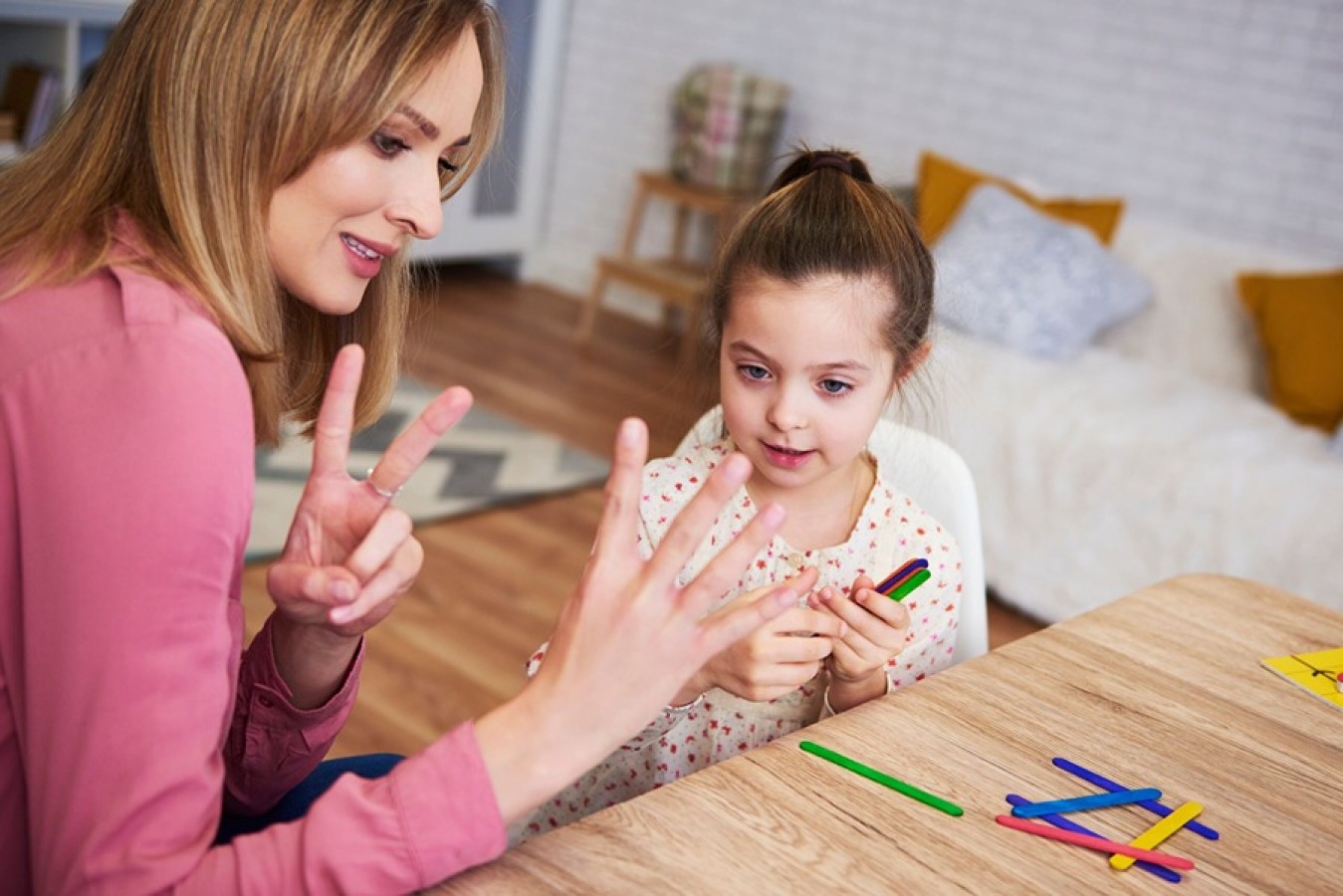Mathematics for Kindergarten: Here Is What Parents Should Know

The foundation for a child's academic success is often laid during their early years, and one crucial aspect of this foundation is mathematical development. Mathematics for kindergarten plays a pivotal role in shaping a child's cognitive abilities and problem-solving skills.
Kindergarten serves as the gateway to a world of numbers, shapes, and patterns that form the building blocks for future academic success. In this article, we will explore the key aspects of learning math in kindergarten and offer insights for parents to support their child's mathematical journey.
Why is Math in Preschool So Important?
Math in preschool might sound a bit early, but it’s actually one of the most important foundations for a child’s learning and development. At this age, children are exploring the world of numbers, shapes, patterns, and problem-solving in ways that feel like play. Whether they’re counting their toys, sorting blocks by color, or recognizing the shape of a circle, they’re building math skills that will support them for years to come.
Early math helps develop critical thinking. When a child figures out how many crackers they need to share with friends or builds a tower using only the red blocks, they’re learning how to reason, solve problems, and make decisions. These thinking skills go far beyond numbers—they help children learn how to approach challenges in school and in life.
Math also plays a big role in language development. Talking about numbers, shapes, and patterns gives children new vocabulary. For example, when a teacher says, “Let’s find the triangle,” or “Which group has more apples?” it encourages children to think and talk in new ways. This kind of math talk builds both their math and communication skills at the same time.
Math Concepts for the Early Years
In the early years, preschool students don’t need to learn complicated math problems or formulas, but they do begin to explore basic math concepts that lay the groundwork for future learning. These concepts are fun and easy to understand, making them perfect for little ones. Let’s dive into some key math concepts preschoolers should know:
1. Counting and Number Recognition
One of the first and most important math concepts for preschoolers is learning to count and recognize numbers. At this age, children learn to count from 1 to 10 (and beyond!) and recognize written numbers. This isn't just about saying numbers out loud, but also about connecting numbers to real objects. For example, they might count blocks, toys, or snacks. When they can count objects and match numbers, they understand that numbers represent quantities, and this is the foundation for all future math.
2. Number Sense
Number sense means understanding how numbers work. Preschoolers start to learn that numbers can be more than just a name—they can be used to compare and measure things. For instance, they might learn that "five" is more than "three," or that a group of five apples is bigger than a group of two. This concept of more and less helps children understand the relationships between numbers and is a vital step for adding and subtracting later on.
3. Shapes and Geometry
Preschool is also the time for exploring shapes. Children learn to recognize basic shapes like circles, squares, triangles, and rectangles. They can also explore the properties of shapes, like how many sides or corners they have. This helps children see patterns in the world around them and understand the structure of objects. They might even begin to put shapes together, which leads to more advanced concepts like symmetry and simple geometric reasoning as they grow.
4. Patterns
Patterns are a fun way to help children understand math. A pattern is a repeating sequence, like red-blue-red-blue, or big-small-big-small. By recognizing and creating patterns, children not only improve their math skills, but they also develop their ability to think logically and predict what comes next. For example, preschoolers might create patterns using colored blocks or stamps, or they might notice patterns in nature, like the stripes on a zebra.
5. Measurement
Measurement introduces children to the idea of comparing the size, length, weight, and volume of different objects. In preschool, this doesn’t mean using rulers or scales, but instead involves more hands-on activities. For example, children might compare which of two toys is bigger, or use cups to measure water while playing. This helps them understand concepts like "more," "less," "bigger," "smaller," and "heavier," which are important building blocks for learning how to measure more precisely later on.
6. Sorting and Classifying
Sorting and classifying are important early math skills that help children make sense of the world. Preschoolers sort objects based on different attributes like color, size, shape, or type. For example, they might sort buttons by color, or group animals into categories like “farm animals” and “wild animals.” These activities help children think critically and recognize similarities and differences, which strengthens their logical reasoning.
7. Simple Addition and Subtraction
While preschoolers are just beginning to explore the idea of adding and subtracting, it’s usually introduced through hands-on activities. They might add two apples to a basket or take one apple away, and they’ll start to understand that numbers represent amounts that can be combined or taken away. This might seem simple, but these early experiences are critical in building the foundation for more complex math skills like addition and subtraction later on.
8. Ordinal Numbers
Ordinal numbers (first, second, third, etc.) help preschoolers understand order and position. For example, when children play a game, they might line up and say “I’m first!” or “You’re second!” This understanding of order helps children make sense of sequences and is important when they learn to count and arrange objects or numbers in a specific order.
9. Basic Fractions
Although fractions may sound complicated, preschoolers can begin to understand the concept of parts of a whole. For instance, they might share a pizza and talk about cutting it into "two pieces" or "four pieces." Using simple terms like "half" or "quarter," they begin to grasp the idea that a whole can be divided into smaller parts.
What Will Your Child Learn at School?
Kindergarten marks a crucial time in a child's development, laying the groundwork for future academic success. In the early years of formal education, your child will embark on a journey of discovery and understanding in various mathematical domains. The foundational concepts covered in kindergarten mathematics include:
1. Number & Place Value
Kindergarteners begin by exploring the world of numbers, learning to count and recognize numerals. Understanding the concept of place value sets the stage for more advanced mathematical concepts in the future.
2. Addition & Subtraction
Basic addition and subtraction skills are introduced through hands-on activities, games, and simple real-life scenarios. These fundamental operations are crucial for building problem-solving skills.
3. Multiplication & Division
While kindergarten primarily focuses on foundational skills, some exposure to the concepts of multiplication and division may occur through activities that involve grouping and sharing items.
4. Fractions
While not delving deeply into fractions, kindergarteners may encounter simple ideas of part-whole relationships. Concepts like dividing a whole into halves or quarters may be introduced in an age-appropriate manner.
5. Geometry
Shapes become a central theme in geometry lessons. Identifying, describing, and manipulating basic geometric shapes, such as circles, squares, triangles, and rectangles, lays the groundwork for spatial awareness.
6. Measurement
Kindergarteners explore the concept of measurement through comparisons. They learn about length, height, weight, and capacity using everyday objects, fostering an understanding of basic measurement units.
How Do Parents Teach Children About Math?
Teaching children about math is a rewarding and engaging process that parents can seamlessly incorporate into everyday activities. Here are some effective ways for parents to instill a love for math in their children:
1. Start with Counting
Begin by introducing counting in a sequential and repetitive manner. Count everyday items like toys, books, or fingers. Create counting routines during daily activities, such as counting steps while walking or counting items during mealtime. Gradually progress to counting backward and forward to enhance comprehension.
2. Use Pictures
Visual aids are powerful for young learners. Introduce number cards with corresponding images to help children associate numbers with quantities. For example, show the number 3 alongside three apples. This visual reinforcement enhances understanding and facilitates a smooth transition from concrete to abstract concepts.
3. Make Flashcards
Flashcards are versatile tools for reinforcing math concepts. Create flashcards with numbers, simple equations, or groups of objects. Use them for quick, interactive sessions, asking your child to identify numbers or solve basic math problems. Flashcards make learning engaging and can be customized to focus on specific skills.
4. Make Math Fun
Infuse enthusiasm into math activities by turning them into enjoyable experiences. Incorporate math into games, songs, or playful competitions. For instance, create a counting song or turn a simple counting activity into a game of "Who can find the most items?". Making math enjoyable fosters a positive attitude towards learning.
5. Use Hands-On Teaching Tools
Tangible objects and hands-on tools provide a multisensory approach to learning math. Introduce counting beads, building blocks, or measuring tools. For addition and subtraction, use objects to physically represent the concepts. Manipulating these tools helps children internalize mathematical ideas through touch and movement.
6. Play Math Games
Engage in interactive games that make learning math an enjoyable experience. Board games like "Count and Move" or card games that involve matching numbers can be both entertaining and educational. Incorporate digital math games designed for young learners to add a technological dimension to play-based learning.
7. Use Everyday Objects
Integrate math into daily life by involving your child in practical, real-world activities. Measure ingredients together while cooking, sort laundry based on colors or sizes, or count items during grocery shopping. By connecting math to everyday experiences, children see its relevance and application in the world around them.
Embark on a Journey of Numbers!
As parents, actively participating in your child's mathematical journey during the kindergarten years sets the stage for a positive attitude towards learning and problem-solving. Mathematics for kindergarten is not just about numbers, it's about building a solid cognitive foundation for a lifetime of learning.
Ready to unlock your child's potential in a world where learning meets fun? Experience the magic firsthand with Rockstar Academy's programs of our early childhood program. As a leading Sports & Performing Arts Academy, we believe in fostering holistic development from a young age.
Our early childhood program is meticulously designed to provide a perfect blend of education and enjoyment, setting the stage for a lifetime of learning. Sign up for Rockstar Academy's free trial today and witness the beginning of a remarkable educational journey for your child!
FAQ
1. How to teach math to a 5 year-old?
Start with counting activities using everyday objects like toys or snacks. Make it interactive and fun to capture their interest. Use visual aids, such as number cards or counting charts, to reinforce numerical concepts.
2. How can I improve my 5 year-old's math skills?
Engage in daily counting activities, use visual aids like number cards and counting beads, play math games, incorporate math into everyday routines, and explore hands-on activities with shapes and patterns. Keep it fun and interactive to foster a positive attitude towards math learning.



